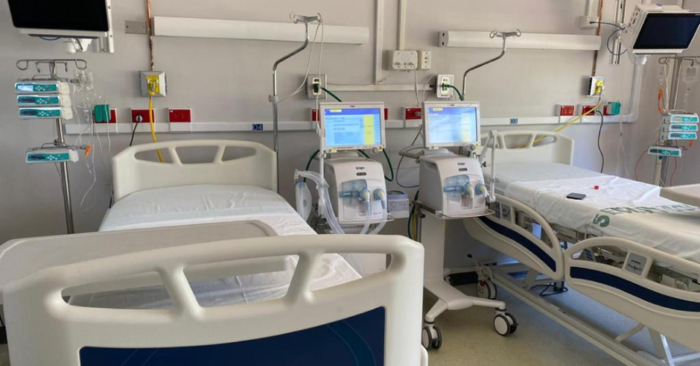Costa Rica: A Role Model to Combat COVID-19
Costa Rica has certainly been a role model when it comes to fighting COVID-19. From developing our own COVID-19 screening tests to finding effective treatment against COVID-19, Costa Rica, a small country from which the big ones could learn a few things.

Costa Rica inaugurated on Tuesday, March 31, a medical center that will exclusively treat patients with COVID-19. The facilities were created in less than two weeks through the remodeling of the National Rehabilitation Center (CENARE) in San José. They will house patients who are positive for COVID-19 who require hospitalization and specialized care.
CEACO will be the shield hospital for the protection of people whose health is compromised by COVID-19. With a new fiber optic network to support telemedicine, a remote monitoring system and other medical equipment, including ventilators and portable radiography machines, to respond to the coronavirus pandemic.
Costa Rica confirms 695 cases of coronavirus
The age range of people in intensive care is 36 to 69 years, according to the Ministry of Health. The total of deaths to date is 6, which indicates a case fatality rate of less than 1%.
The Costa Rican president, Carlos Alvarado, inaugurated the Specialized Patient Care Center with COVID-19 (CEACO), a site that will provide special care to 88 patients with complications derived from COVID-19 simultaneously and that will be operated by a team of about 1,350 workers.
In just 11 days, with 24-hour jobs, they transformed the National Rehabilitation Center, which was dedicated to physical rehabilitation, into a specialized one for COVID-19 that includes a whole new electrical installation, a new medical gas distribution system, service fiber optic telecommunications, beds, ventilating equipment, x-rays and vacuum cleaners that were purchased to attend the emergency.
“Seeing this, which has been done in 11 days, what it shows is that Costa Rica is capable of doing things, we are capable of defeating COVID-19, but that is why the recommendations must also be followed,” said Alvarado.
Two types of Covid-19 patients will be cared for
This human resource, infrastructure and equipment will allow two types of patients to be cared for, those who require support through a pulmonary ventilator and more intensive monitoring, and other patients who require hospitalization for the pathology of COVID-19, but who are considered intermediate.
A total of $16 million was invested in the project, which includes the transformation of the rehabilitation center, as well as the purchase of equipment for the entire country such as lung ventilators, transportable X-rays, extracorporeal membrane oxygenation equipment, special stretchers, pumps broadcast, among others.
At the access level, those for patients and ambulances were built, transformer stands were built and equipment for the nutrition service was incorporated.
This multidisciplinary team includes:
- Emergency physicians.
- Critical Care Specialists.
- Respiratory therapists experienced in managing critically ill patients.
- Nurses specialized in managing critically ill patients.
- Laboratory staff.
- Pharmacy.
- Microbiology.
- Nutritionists.
- Radiologists.
- Infectologists.
- Scrub nurses for operating rooms.
- Surgeons.
- Patient assistants.
- General service officers.
- Professionals in medical records.
- Stretchers.
The new shield hospital has high-end equipment, which includes: 48 pulmonary ventilators, 2 video laryngoscopes, 1 portable X-ray equipment, 88 secretion aspirators, 88 transport carts for disposable materials, 22 non-contact infrared thermometers , plasma autoclave equipment for the sterilization of medical equipment and cranes for the mobilization of patients, among others.
Costa Rica’s defense policy
Costa Rica keeps its borders closed for the entry of foreigners, has suspended the school year and massive events, and ordered the closure of places such as bars, discos, parks, national parks, beaches, among others, as preventive measures.
The Government has not established a mandatory quarantine, except for people who return from abroad, and has asked the population to stay home.
In addition, there is a prohibition on the movement of vehicles after 22:00 on weekdays, and after 20:00 on weekends.
